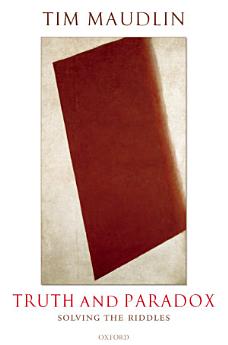Truth and Paradox: Solving the Riddles
พ.ค. 2004 · Clarendon Press
eBook
224
หน้า
family_home
มีสิทธิ์
info
reportคะแนนและรีวิวไม่ได้รับการตรวจสอบยืนยัน ดูข้อมูลเพิ่มเติม
เกี่ยวกับ eBook เล่มนี้
Truth and Paradox offers a comprehensive account of truth values and the norms governing claims about truth, based on a new approach to logic and semantics. Since the seminal work of Tarski in the mid-twentieth century, the Liar paradox and other related paradoxes have stood in the way of a precise philosophical account of truth. Tim Maudlin draws on analogies from mathematical physics to explicate the origin of classical truth-value gaps, and to provide an account of truth that avoids any hierarchy of languages or of truth predicates. He also closely investigates our reasoning about truth, including apparently unobjectionable reasoning about the paradoxical sentences. The fallacies in that reasoning are located not in any inferences concerning truth, but in the foundations of standard logic. Blocking the paradoxical arguments requires emendation of classical logic, and the requisite emendations call into question the existence of any a priori logical truths. Maudlin also includes a discussion of facts and factuality, most particularly the question of whether there are any facts about truth. All philosophers interested in logic and language will find this a stimulating read.
ให้คะแนน eBook นี้
แสดงความเห็นของคุณให้เรารับรู้
ข้อมูลในการอ่าน
สมาร์ทโฟนและแท็บเล็ต
ติดตั้งแอป Google Play Books สำหรับ Android และ iPad/iPhone แอปจะซิงค์โดยอัตโนมัติกับบัญชีของคุณ และช่วยให้คุณอ่านแบบออนไลน์หรือออฟไลน์ได้ทุกที่
แล็ปท็อปและคอมพิวเตอร์
คุณฟังหนังสือเสียงที่ซื้อจาก Google Play โดยใช้เว็บเบราว์เซอร์ในคอมพิวเตอร์ได้
eReader และอุปกรณ์อื่นๆ
หากต้องการอ่านบนอุปกรณ์ e-ink เช่น Kobo eReader คุณจะต้องดาวน์โหลดและโอนไฟล์ไปยังอุปกรณ์ของคุณ โปรดทำตามวิธีการอย่างละเอียดในศูนย์ช่วยเหลือเพื่อโอนไฟล์ไปยัง eReader ที่รองรับ






